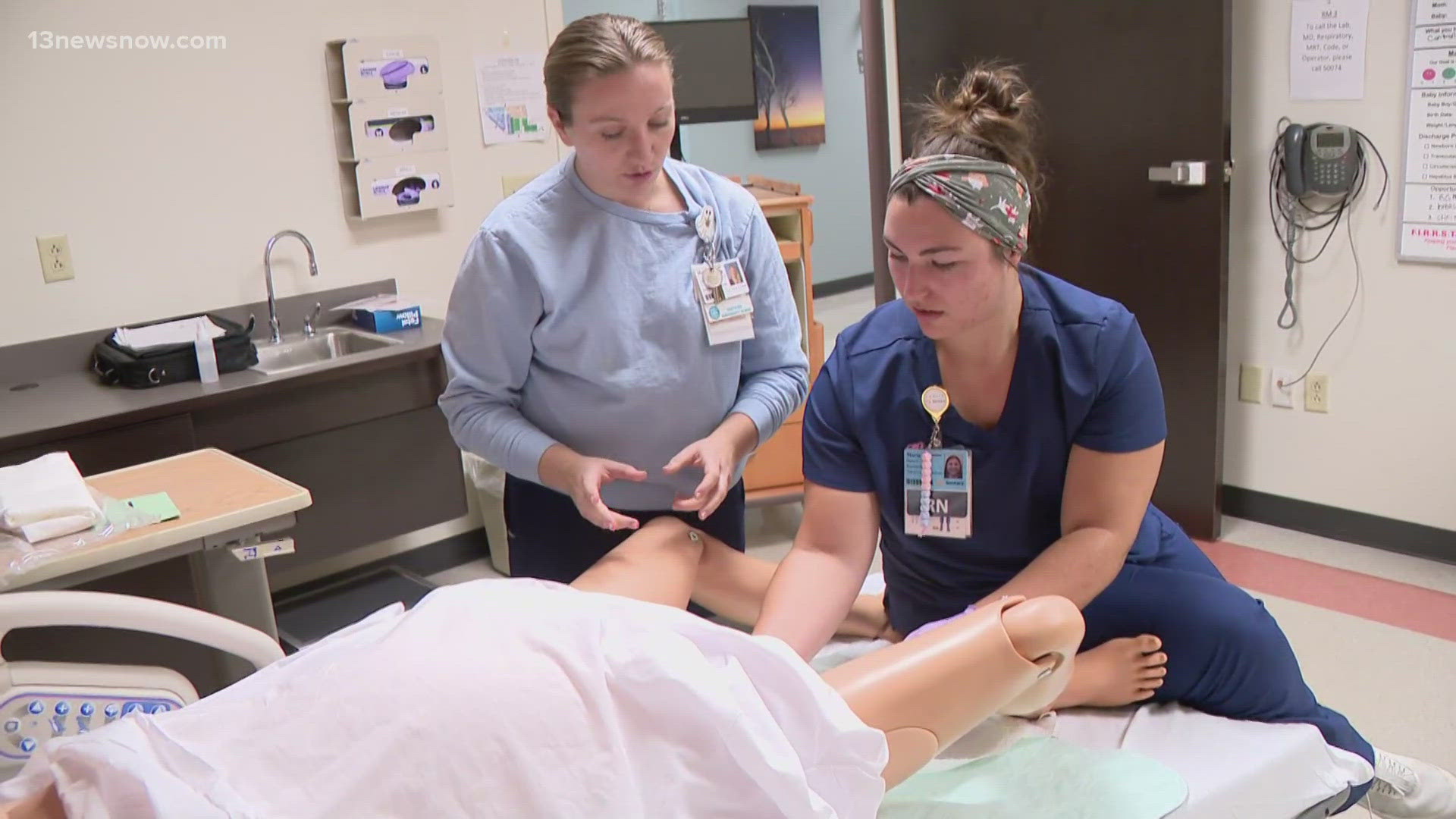CHESAPEAKE, Va. — As hospitals across the nation struggle nationwide to keep nurses at patients' bedsides, one local health provider is addressing the issue with a new program.
The Nurse Residency Program was recently launched at Sentara Health. There, roughly 750 nurses a year receive training within six branches: women’s health, critical care, emergency care, intermediate care, medical-surgical care, and operating room care.
The goal is to not only give nurses additional training, but to retain them in hospitals.
"We knew we could do a better job, but we needed to change how we were doing it," said Angela Sesin, a nursing professional development specialist.
Sesin is a mentor with the program and said the shortage of nurses is not just a Hampton Roads problem, it's nationwide.
According to the U.S. Bureau of Labor more than 250,000 nurses will be needed by 2030, that number jumps to 13 million worldwide.
Sesin said the COVID-19 pandemic only aggravated the shortage.
"Nurses are coming out not with the same training they were getting before. Their clinicals got shortened, sometimes they weren't seeing the patients that were the sickest - they weren't able to get that experience at the bedside," said Sesin.
Now, nurses like Maria Stinson are receiving that extra experience. Stinson, who just graduated nursing school in August, and chose Labor and Delivery as her new focus.
"My focus is entirely on mothers and babies at this point, versus in nursing school, it was more general knowledge about mainly adult health," said Stinson. "We did, like, one pediatrics class."
The residency program is also to the benefit of nurses looking to switch their focus, like Tianna Ramos.
Ramos is now a mentor in the program after she also switched to Labor and Delivery. She said the need for qualified, compassionate nurses has never been greater.
"We all see the data," Ramos said. "We see the U.S. needs to ramp up their women's health care and be more prepared to care for these women who have more complicated diagnoses, or complicated pregnancies, or even low risk pregnancies, where things can still go wrong."
All newly-hired Sentara nurses are expected to go through the residency program for free. The program lasts roughly six months.

